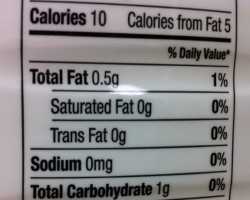California’s GMO Measure Defeated

In what most people in agriculture believe to be a heartening blow for sound science, a California measure to require labeling of genetically modified foods went down to defeat. Proposition 37 lost in Tuesday’s vote 53% to 47%.
The measure was scorned by many because GMOs have become a common part of nearly all Americans’ diets. By far the lion’s share of soybeans and corn grown in the U.S. are genetically modified, and it’s difficult to find a prepared food that does not contain these ingredients in some fashion.
The cost of labeling all those products that are to be sold in California would have been considerable. Opponents estimated that the average family would add hundreds of dollars to their monthly grocery bills.
Close Call
For months, polls showed the measure was favored by most registered voters. Opponents said that was only because they were not familiar with how pervasive GMOs are, and how harmless they are considered. Indeed the American Medical Association released a statement this past summer declaring that the labeling of GMOs is completely unnecessary.
Most believe that only a media blitz to educate voters financed by not only biotech giants but large food companies kept Prop 37 from passing. At least $45 million was raised from biotech companies, grocery manufacturers, and the soft drink industry. Top contributors to the anti-labeling campaign, called No on 37, included Monsanto, Dow, Bayer CropScience, Syngenta, and BASF. Coca-Cola, PepsiCo, Kraft Foods, and Nestle all have donated more than $1 million to oppose the labeling campaign.
The pro-labeling campaign raised about $7 million. It was supported by advocacy organizations such as the Environmental Working Group and Public Citizen. Mercola Health Resources, which sells nutritional supplements, and the Organic Consumers Fund, a lobbying group, were major backers.
Not Finished
Prop 37 supporters vowed this morning that the movement was far from over. Read one blog posting on the California Right To Know campaign’s website: “Yesterday, we showed that there is a food movement in the United States, and it is strong, vibrant, and too powerful to stop!”
The blog post was one of several stating that the election should be viewed not as a defeat, but as the beginning of a new movement.
It went on to state: “Today is not the end of our campaign to secure our fundamental right to know what’s in our food.”
National Ramifications
Supporters said success at the ballot box would bring one of the biggest consumer markets and food producers in the country in line with labeling laws in 61 other countries. The issue is far bigger than California, said Stacy Malkan with the California Right to Know campaign, which launched the initiative.
“It’s really the first time we’ve had a national conversation about genetically engineered foods in the United States in a major way,” she told the McClatchy news service. “That in and of itself is a significant achievement.”
Proposition 37 was actually the second time nationwide that voters have been asked to decide about labeling GMOs. Oregon voters rejected a similar measure 10 years ago.
Legal Nightmare
Supporters said their effort was only about empowering consumers who deserve to know what’s in their food. But legal scholars said the right to know contained in Proposition 37 also came with the right to sue.
The initiative was worded in such a way that it could invite lawsuits against food producers and grocery stores, experts said. Plaintiffs, including individual consumers, could have sued for an injunction to halt mislabeled goods without having to show they were somehow harmed or deceived. In class-action lawsuits, the prevailing side could have won damage awards and recouped attorney’s fees and other costs.
If Proposition 37 had passed and survived on appeal, “you’re looking at full employment for lawyers without a doubt,” law professor David Levine at the University of California, Hastings College of the Law, told the Associated Press recently. Levine was not affiliated with either campaign.









